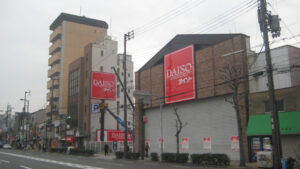When planning a trip or stay in Japan, many foreigners wonder, “How well is English spoken in Japan?” While English support has progressed in urban areas and tourist spots, language barriers can still be a challenge in rural regions. This article provides a comprehensive overview of the reality of English in Japan, the current state of English education, the language environment travelers may face, and the cultural attitudes Japanese people have toward English.
Contents
How Well Is English Spoken in Japan? Overview of the Language Situation
Proportion of English Speakers and Regional Differences
Differences Between Urban and Rural Areas
The degree to which English is spoken in Japan varies significantly by region. In major metropolitan areas such as Tokyo, Osaka, and Kyoto, English support is relatively well established due to business and tourism influences. Many shops, hotels, and transportation services have English-speaking staff, making basic communication easier. Conversely, in rural and agricultural areas, English support is limited, and fewer people speak English, which can make communication challenging.
English Proficiency by Age Group
There are also differences in English comprehension among different age groups in Japan. Younger generations tend to have better English skills, benefiting from enhanced English education in schools. Particularly, people in their 20s and 30s living in urban areas often have conversational English abilities. On the other hand, older generations have had fewer opportunities to engage with English, resulting in lower comprehension and difficulty in holding conversations in English.
English Environment in Tourist Areas
English support is relatively advanced in tourist areas. Major tourist attractions, international airports, hotels, and tourist information centers often have English signage and staff who can speak English. As the number of foreign visitors to Japan increases, these services are continually improving. However, the level of English support can vary depending on the size and location of the tourist destination, so fluent English communication is not guaranteed everywhere.
Current State and Challenges of English Education
English Learning Content in Schools
English education in Japanese schools becomes compulsory from junior high school and continues into high school. The curriculum mainly focuses on grammar, reading comprehension, and vocabulary memorization, with an emphasis on test preparation. Recently, new teaching guidelines aiming to develop communication skills have been introduced, increasing the practice of speaking and pronunciation, but traditional methods still dominate many classrooms.
Reasons and Background for Difficulty with English
Several cultural and educational factors contribute to why many Japanese find English difficult. Firstly, the long-standing focus on grammar and literacy means speaking and listening skills are often underdeveloped. Secondly, the significant differences in pronunciation and intonation between Japanese and English create communication barriers. Additionally, Japanese education and society tend to emphasize avoiding mistakes, which makes learners less confident when speaking English.
The Role of Private English Education
Since school education alone does not always develop practical English skills, many Japanese who want to speak English use private conversation schools or online English services. These services offer learning tailored to daily conversation, business English, and pronunciation training. Interaction with native speakers helps improve practical communication skills and plays an important role in overcoming reluctance to speak English.
Japanese Attitudes Toward English and Cultural Aspects
Reluctance to Speak English
Many Japanese people feel fear of making mistakes, embarrassment, or nervousness when speaking English. This is influenced by a culture that avoids failure and a tendency toward perfectionism, leading to a lack of confidence in English-speaking situations. As a result, the willingness to actively use English is often suppressed, limiting opportunities for English communication.
Japanese English Communication Style
Japanese English communication reflects cultural traits that emphasize politeness and ambiguity. For example, people tend to avoid direct expressions of opinion and use indirect phrases to save face for others. This can result in hesitant and modest speech even when using English, making lively exchanges of opinions more difficult.
Social Background of English Use in Japan
English use in Japan is mostly limited to specific contexts such as education, business, and tourism, with few opportunities to use English in daily life. Additionally, English proficiency is often seen as a special skill possessed by only a few. This social background restricts motivation for learning English and limits practical usage opportunities, creating barriers to improving English skills.
Using English in Japan: What Travelers Should Know
English Support in Major Tourist Areas
English Support at Hotels and Accommodations
In large cities and popular tourist destinations, many hotels and accommodations have staff who can speak English, providing services such as check-in and facility guidance in English. Hotels catering to many foreign tourists often have English pamphlets and signage, making communication relatively easy. However, small inns and rural lodging facilities may have limited English support, so travelers should be aware of this.
Using English at Restaurants and Shopping
In major cities like Tokyo, Osaka, and Kyoto, many restaurants and commercial facilities offer English menus and staff who can assist in English. Tourist areas feature increasing English signs and explanations, enabling smooth basic interactions. However, in rural areas or smaller shops, English may be less commonly understood, so using phrasebooks or translation apps can be helpful.
English Guidance in Public Transportation
Public transportation in major Japanese cities generally includes English signage inside stations and on trains, making it accessible for foreign travelers. Especially in subways and Shinkansen bullet trains, English announcements and guidance are standardized, and purchasing tickets or transferring is relatively straightforward. However, local trains and buses in rural areas may have limited English information, so checking routes in advance is advisable.
Places Where English Is Easy or Difficult to Use
Tourist Spots vs. Local Areas
In large cities like Tokyo, Kyoto, and Osaka, as well as well-known tourist destinations, many stores and facilities are accustomed to English communication. English signage and information are well-established in heavily visited areas, so travelers can communicate with relative ease. In contrast, local neighborhoods and smaller towns with predominantly local residents have fewer English speakers, and communication can be challenging, so caution is advised.
Language Situations in Regional Tourist Areas
While some main tourist facilities and hotels in regional areas may have English support, restaurants, public facilities, and transportation services often have limited English guidance. Even within tourist destinations, areas with fewer visitors may pose communication difficulties due to the lack of English speakers. Prior research, learning basic Japanese phrases, and preparing translation tools can be very helpful.
How to Handle Situations When You Struggle with English
Using Gestures and Translation Apps
Even when language barriers exist, communication is possible through gestures and body language. For example, pointing or using simple hand signals can help the other person understand you better. Additionally, smartphone translation apps like Google Translate and DeepL are highly effective. They support text and voice input and can translate in real-time, making them invaluable tools when you face difficulties.
Utilizing Tourist Information Centers and English Support Desks
Tourist areas, major train stations, and city halls often have tourist information centers staffed with English-speaking personnel. When in trouble, actively use these desks to get directions and information. Airports and large shopping malls may also have English-speaking staff available, so don’t hesitate to ask for help when needed.
The Benefits of Learning Basic Japanese Phrases
Learning a few simple Japanese phrases can significantly smooth communication with locals. Knowing greetings, expressions of thanks, and basic questions can foster goodwill and leave a positive impression. Being able to convey simple messages in Japanese during difficult moments often leads to quicker assistance. Preparing a phrasebook before traveling is highly recommended.
Current Status and Challenges of Japanese English Proficiency
Results and Statistics from English Proficiency Tests
Japanese English proficiency is regularly evaluated through international tests and surveys. Average scores on tests like TOEIC and Eiken are moderate compared to other Asian countries, with particularly low scores in listening and speaking. The OECD’s PISA survey shows Japanese reading comprehension in English is at a certain level, but practical communication skills remain a challenge.
Reasons Behind Low Speaking Ability
The main reasons for low speaking ability among Japanese people include an educational focus on reading and writing, and a lack of opportunities to speak English. Because actual conversation practice is limited, many lack confidence in speaking. Additionally, cultural factors such as fear of making mistakes and pronunciation difficulties further hinder speaking skill development.
Shift Towards Communication-Focused Education
Recently, English education in Japan has shifted from emphasizing reading and writing to prioritizing speaking and listening skills. Initiatives such as introducing English classes in elementary schools, utilizing Assistant Language Teachers (ALTs), and conducting discussions and presentations in English are enhancing communication abilities. This change is expected to result in future generations with stronger practical English skills.
H3-4-2: Cultural Considerations in Communication
H4-4-2-1: Politeness and Indirect Expressions
Politeness is highly valued in Japanese communication. When speaking in English, it is preferred to use polite language and expressions that show respect to the other person. Additionally, Japanese culture often avoids direct refusals or demands, opting instead for ambiguous or indirect expressions to save the other person’s face.
H4-4-2-2: The Importance of Reading the Other Person’s Reactions
Japanese people often convey meaning through nonverbal cues and indirect expressions, so it is important in English conversations to carefully observe the other person’s facial expressions, attitude, and tone of voice. Understanding the unspoken feelings or true intentions is expected, and one should avoid forcing someone to say something they do not want to express.
Understanding English Use in Japan for a Comfortable Stay
In Japan, English support is progressing mainly in urban areas and major tourist spots, but in rural areas, English is often not well understood. Thanks to educational reforms and growth in private English education, younger generations’ English abilities are gradually improving; however, cultural resistance to speaking remains strong. Travelers and long-term residents can ease communication difficulties by using translation apps, learning simple Japanese phrases, and actively utilizing tourist information centers and English support desks. By properly understanding Japan’s English environment and respecting cultural nuances, you can aim for smoother and better communication during your stay.












